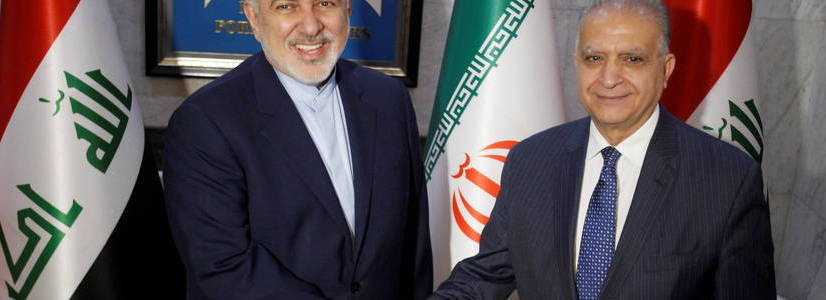
Geopolitical power projection could be, at first sight, the logic underlying Iran’s policy of expanding ties with and playing a role in Iraq. But in recent years, and with the growing necessity arising from the reimposition of US sanctions, Tehran has chosen to also focus on geo-economic interests in Iraq. It has tried, therefore, to augment its share of the Iraqi market and major economic projects, helping develop Iraq’s soft and hard infrastructure.
The vacuum created by the 2003 US-led invasion of Iraq provided significant room for Iran’s strategic interactions with Iraq. And now the Trump administration’s sanctions have paradoxically helped Iran concentrate on pursuing geo-economic interests in Iraq.
Accompanied by a large delegation of Iranian business leaders, Foreign Minister Mohammad Javad Zarif recently visited Iraq, with economic diplomacy topping the agenda, an example of Iran’s geo-economic ambitions. An upcoming trip to Iraq by President Hassan Rouhani is also expected to revolve around the same economic interactions.
During the period stretching from March 21, 2018, to Dec. 20, 2018, Iraq absorbed 20.7% of Iran’s non-oil exports, surpassing China, which had long stood head and shoulder above other destinations for Iran’s non-oil products. During the same period, Iraqi imports from Iran witnessed a 48% jump compared to the same period in 2017. Between the figures, one can read an important growing trend in Iran’s foreign trade as a whole, and in its geo-economic ties with Iraq in particular.

